Case Stories From One Middle School’s Efforts for Partnership
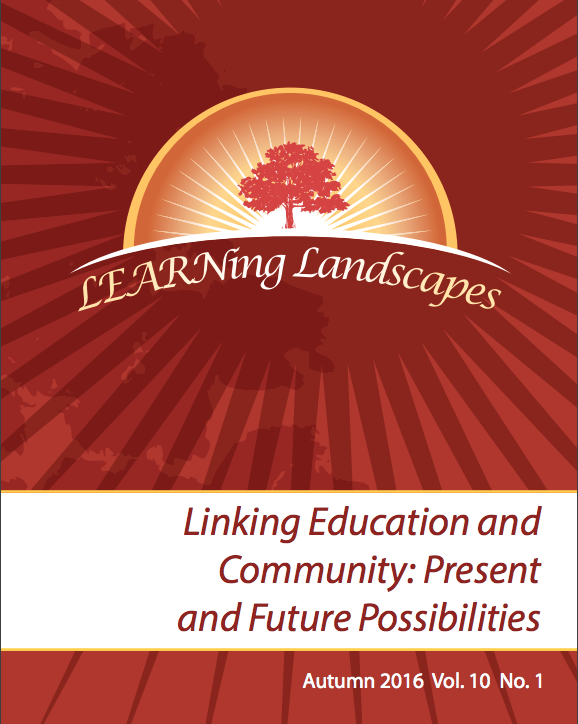
This article is written by Students at the Center Distinguished Fellow Dr. Frank LaBanca, principal of Westside Middle School Academy Magnet, as part of volume 10 of the educational journal LEARNing Landscapes. The article highlights his successes and challenges as principal of a start-up urban magnet middle school committed to a student-centered inquiry-based learning environment that values extended… Read More ›
States Capacity a Nagging Issue as ESSA Gears Up
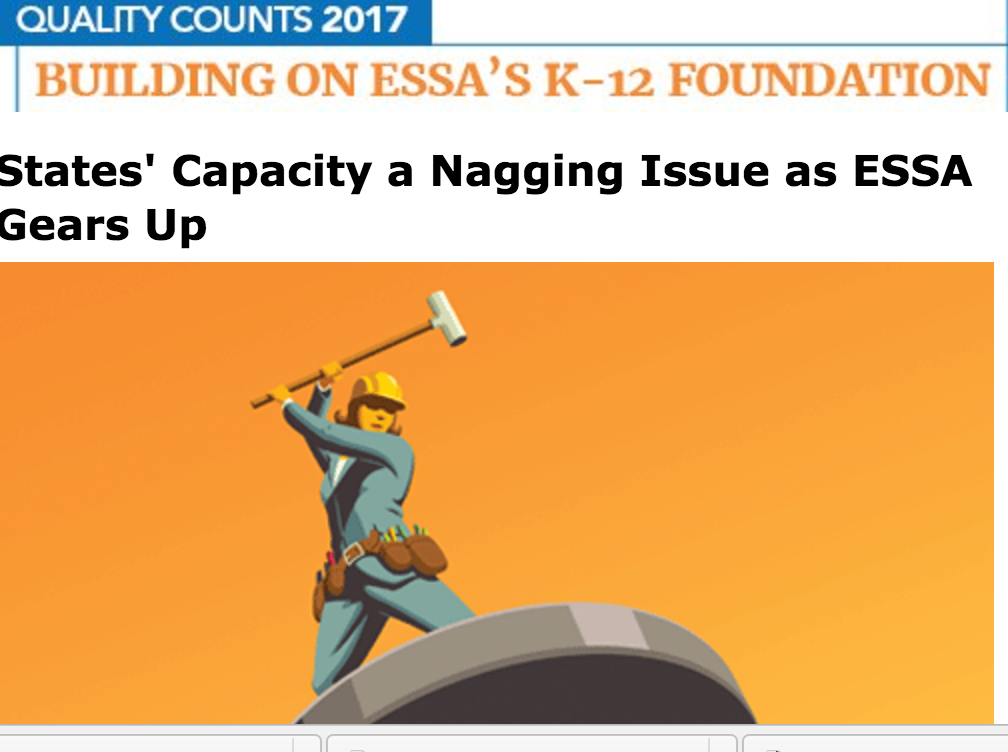
This article discusses whether state lawmakers are ready for implementation of the Every Student Succeeds Act (ESSA). The article raises concerns that state education agencies do not have adequate staffing or funding to address the responsibilities of crafting and managing state accountability plans. In addition, it asserts that states are already tackling many other new… Read More ›
Will Blended Learning Fulfill its Disruptive Potential?
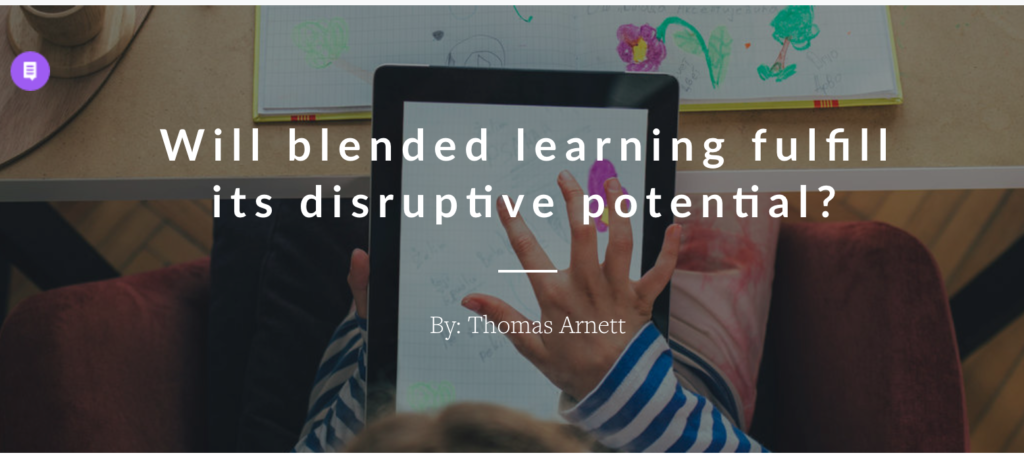
In this opinion piece, Thomas Arenett explores blended learning and the concept of disruptive innovation, a theory of change and the central theme of research at the Christensen Institute. Researchers there hope disruptive innovations can end the cycle of fads in education reform, in which new approaches enter the landscape with promise but fizzle out… Read More ›
Five Things You Need to Know About New Hampshire’s Completion-Based Funding Model

This article describes five key findings from a Center for Innovation in Education report on a New Hampshire completion-based funding (CBF) school finance model. New Hampshire embraces a competency-based education system, and this funding approach provides student funding based on assignments completed rather than enrollment numbers. The article details how the funding model works and… Read More ›
A Learner-Centered System Student Experience

This graphic presents a story of a typical day in the life of a fictional student, Katrina, at the age of 4, 11, 19, and 27, experiencing student-centered learning. It brings to life learner-centered education and shows the long term impact a shift in the education system could have on students’ future success. To more… Read More ›
CBAM: Stages of Concern About Personalized Learning
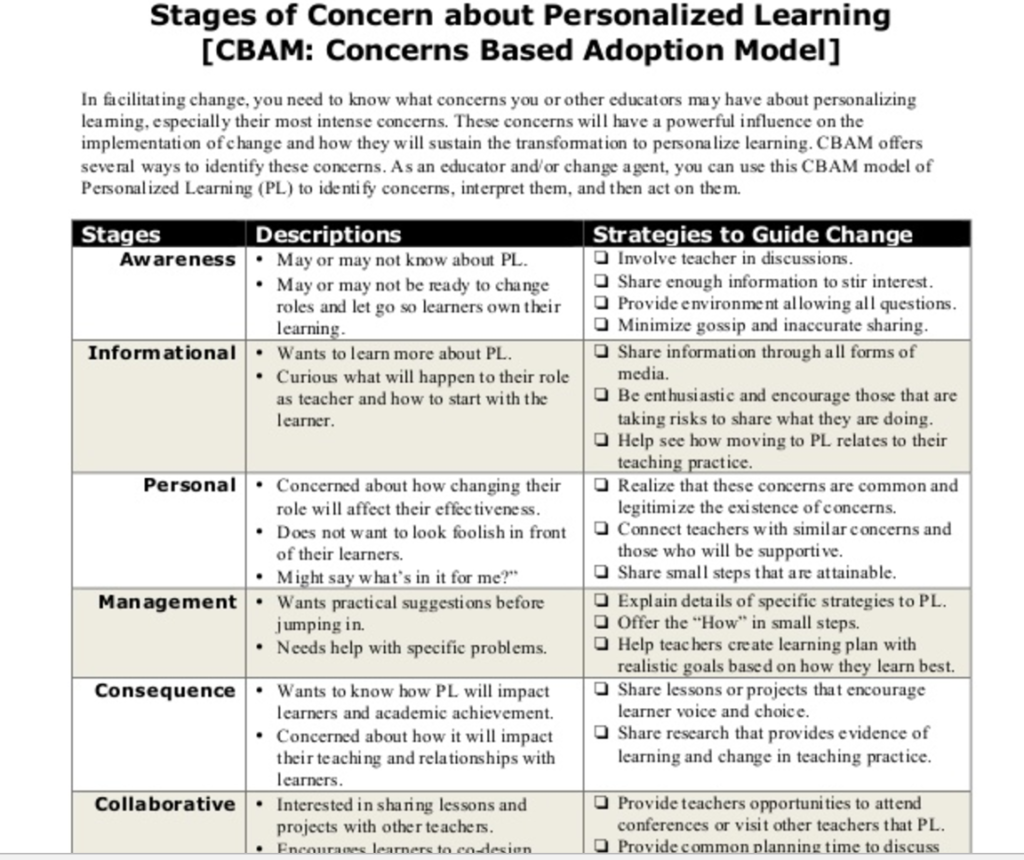
This article introduces the Concerns Based Adoption Model (CBAM) which provides a structure for understanding and addressing the concerns of educators as they transition from more traditional to more student-centered, personalized learning. A simple chart identifies seven levels of readiness for adoption from “Awareness” which describes educators who are newly aware of the concepts of… Read More ›
Teaching Adolescents to Become Learners: The Role of Noncognitive Factors in Shaping School Performance, A Critical Literature Review
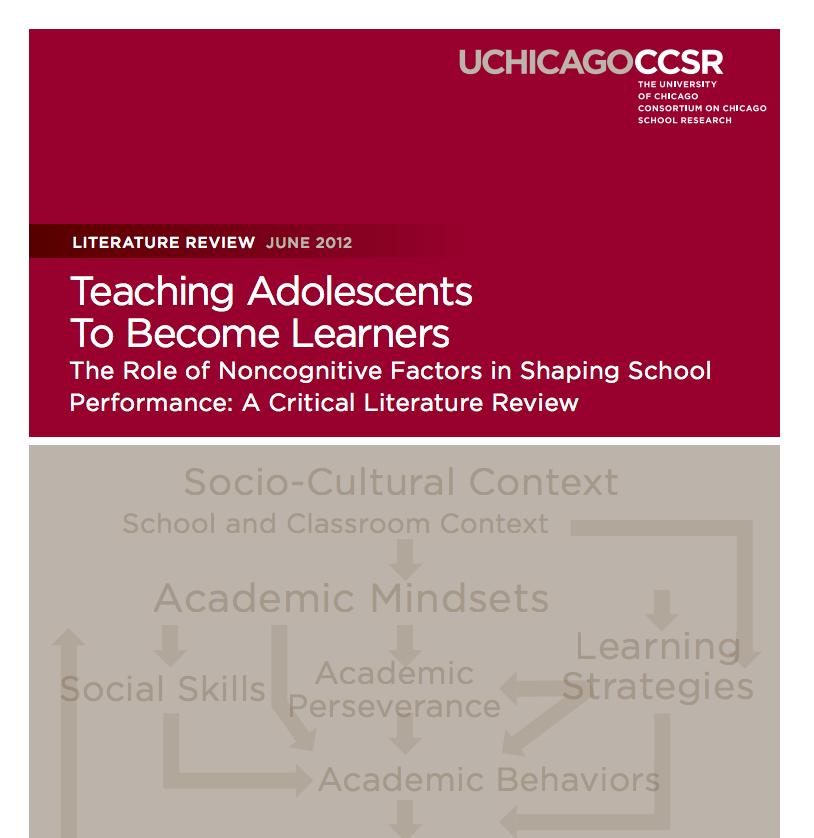
This frequently-cited report from the University of Chicago Consortium on School Research provides a comprehensive review of the connection between noncognitive factors and academic success based on existing research. After a literature review of over 400 resources, the authors organized a large number of noncognitive traits, skills, behaviors, and attitudes into five categories. The report… Read More ›
The Promise of Personalized Learning in Rural America

This paper explores the application of personalized learning in rural schools, discusses and proposes solutions to the practical and policy barriers to implementation, and shares lessons learned from early adopters, including three case studies from rural communities in Maine, Wyoming, and Nevada. The paper outlines a number of suggestions to help rural policy makers, administrators,… Read More ›
Can Personalized Learning Work in Rural America?

In this article, the author asserts that personalized learning can help resolve some of the unique challenges that rural schools and students in rural districts face. However, most of the initiatives to implement personalized learning, and the corresponding education research, have focused on urban settings. The article looks at how implementation in a rural setting is… Read More ›
What Happens to Maine Students Who Don’t Meet Proficiency Standards?

This article explores possible impacts of the new Maine state laws that require proficiency-based diplomas for graduation. It discusses the concern of some educators about students who may not be ready to demonstrate the needed proficiencies due to language barriers, behavioral issues, or because they were previously passed from grade to grade without demonstrating true… Read More ›
District Conditions for Scale: A Practical Guide for Scaling Personalized Learning
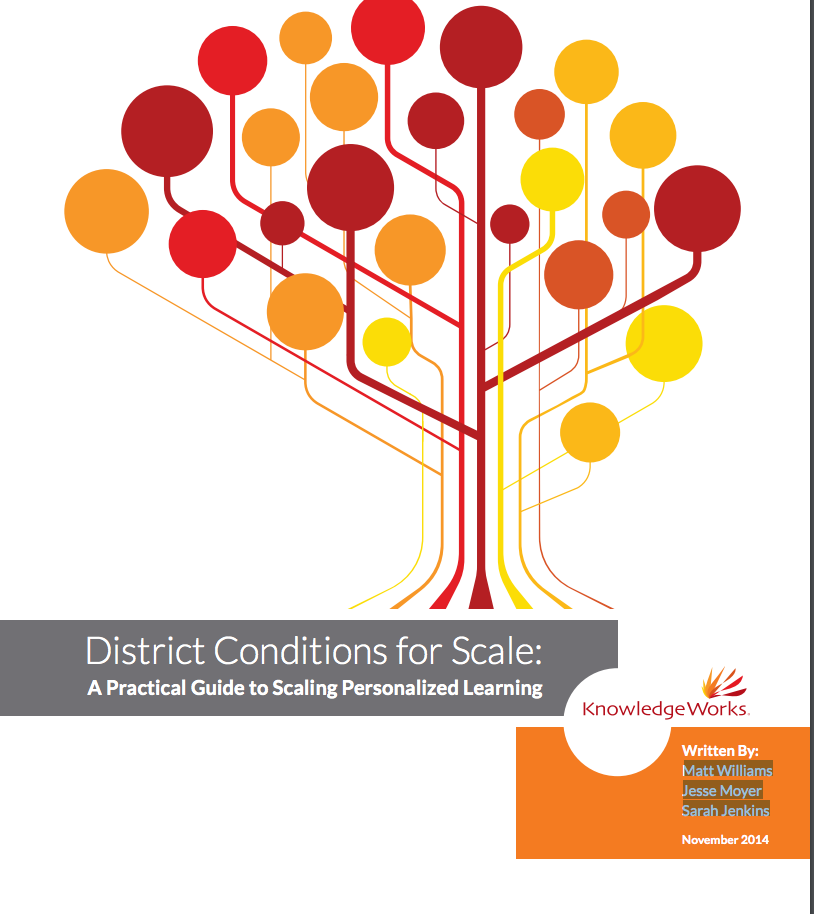
In this toolkit by KnowledgeWorks the authors begin to explore how to move from isolated school models of student-centered learning to whole systems designed around personalized learning. Researchers at KnowledgeWorks examined existing research in the field and conducted primary research through interviews of more than 30 district superintendents and leadership teams from across the country… Read More ›
Reaching the Tipping Point: Insights on Advancing Competency Education in New England
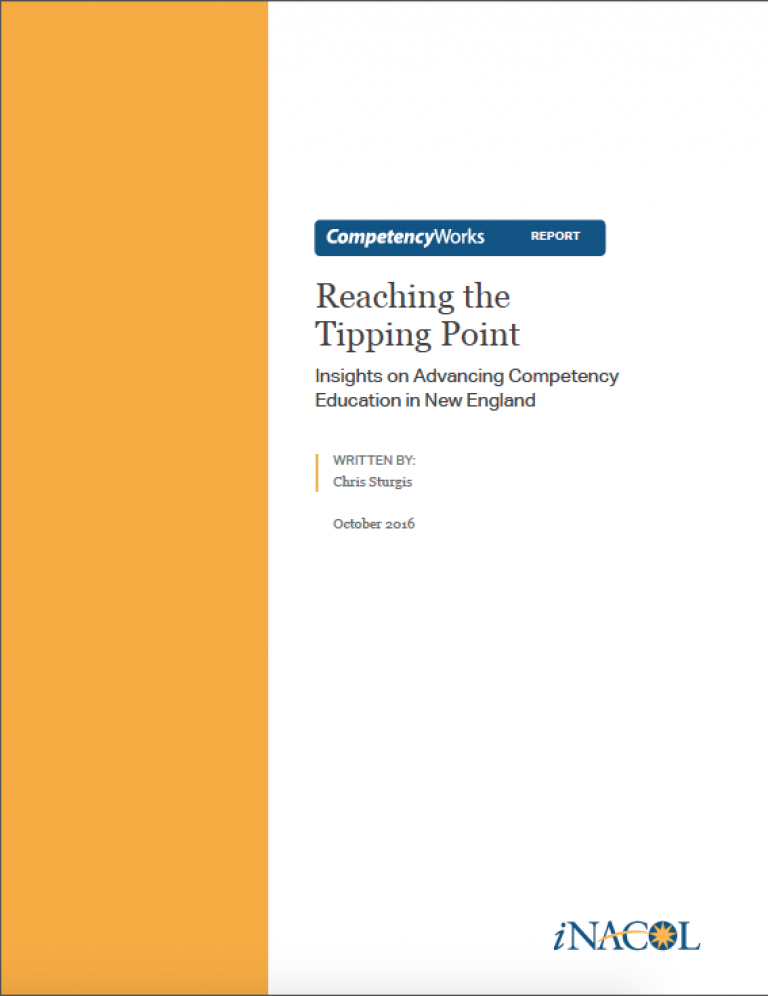
This paper explores K-12 competency-based education policy and practice across six New England states: Connecticut, Maine, Massachusetts, New Hampshire, Rhode Island, and Vermont. It examines the core concepts of competency education, detailing the limitations of the traditional system, and outlining how competency education is designed explicitly for equity and student success. Next, the author addresses… Read More ›